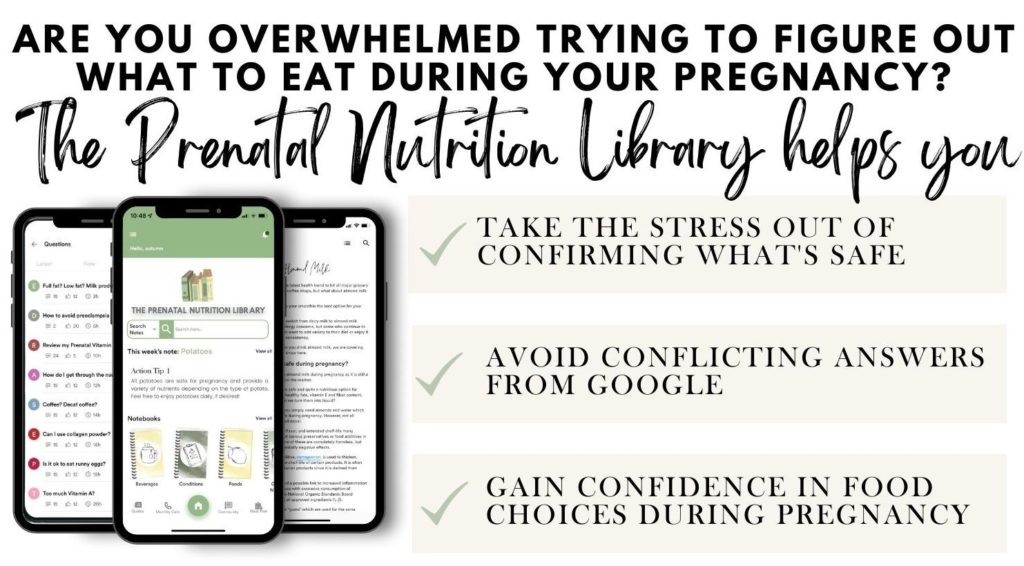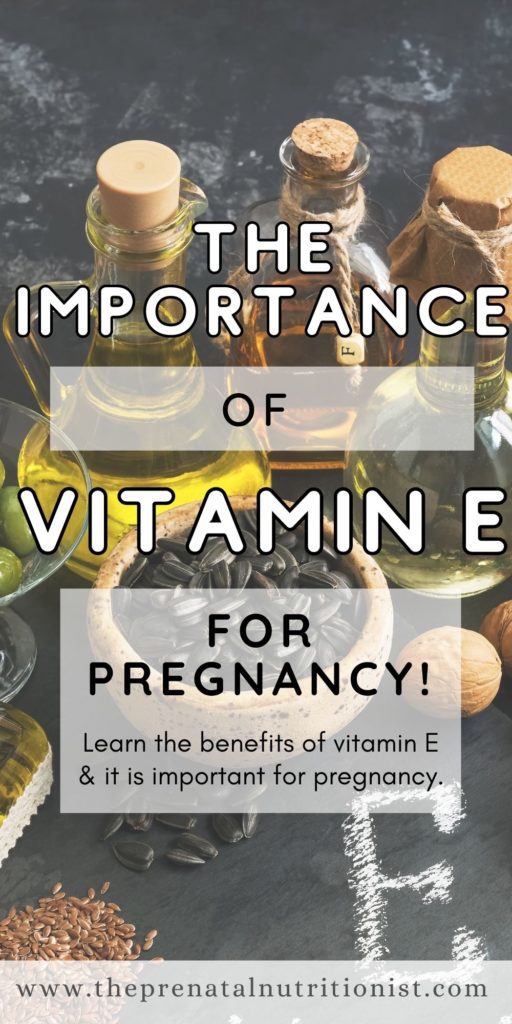
Vitamin E plays a vital role in the human body. It also plays a significant role in women’s reproductive health, including ovulation, menstruation, and pregnancy. For most adults, including pregnant women, the recommended daily amount of vitamin E is 15mg. This value increases to 19mg for breastfeeding women.
There is an upper limit set for vitamin E during pregnancy. Research suggests high doses of alpha-tocopherol supplements have a negative effect on platelets’ role in the blood during pregnancy. That said, it’s highly unlikely that you will consume too much vitamin E from food alone during pregnancy. Between your daily diet and prenatal vitamin, you should be well within the healthy vitamin E range. And on the other end of the spectrum, very few healthy individuals suffer from vitamin E deficiency and the side effects.
There are many forms of vitamin E. The main form and most common one is alpha-tocopherol. Vitamin E can also play an essential role in the body during pregnancy. I’m dedicating this post to giving you a clear understanding of the importance of getting enough vitamin E during pregnancy and how to up your intake of vitamin E including the role of vitamin E supplementation in pregnancy.
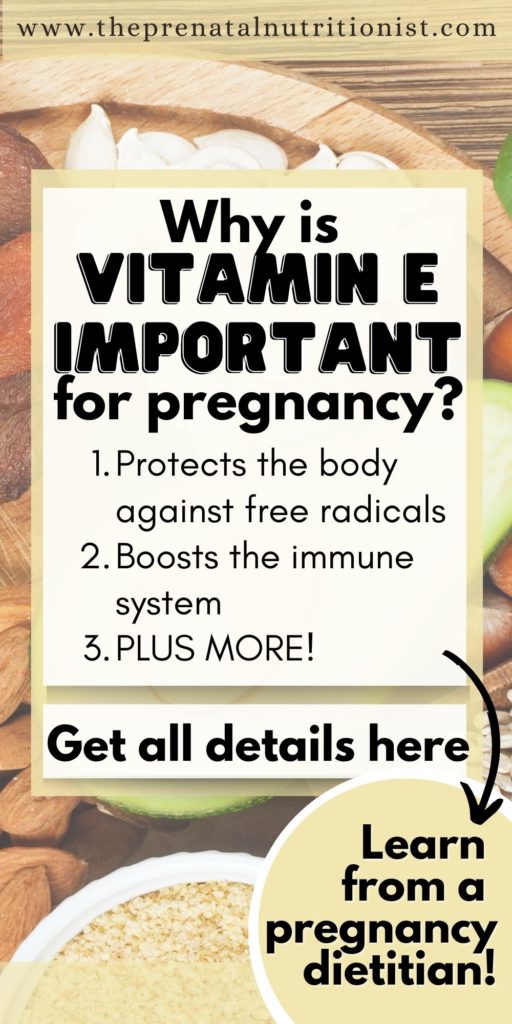
Importance Of Vitamin E During Pregnancy
Protects the body against free radicals.
There still isn’t a lot of research on the effectiveness of vitamin E supplementation during pregnancy for various conditions and scenarios, such as those at high risk for preeclampsia. However, most pregnant women are not at risk for deficiency. Vitamin E is readily available from many natural food sources.
Vitamin E functions as a fat-soluble vitamin and antioxidant. In fact, Vitamin E’s antioxidant properties help decrease oxidative stress by protecting against free radicals that can damage your body’s cells. Oxidative stress during pregnancy has been linked to increased risk and side effects like pre-eclampsia, intrauterine growth restriction, and some congenital disabilities.
It may help to prevent respiratory issues.
Some research suggests and a study showed that adequate vitamin E intake during pregnancy may help reduce the likelihood of your child developing asthma or other respiratory issues later in life.
Supports the immune system.
Vitamin E plays a vital role in strengthening your immune system. It supports T-cell production, and by protecting your body from free radicals, as mentioned above, your body may be better equipped to fight viruses and other potentially harmful invaders.
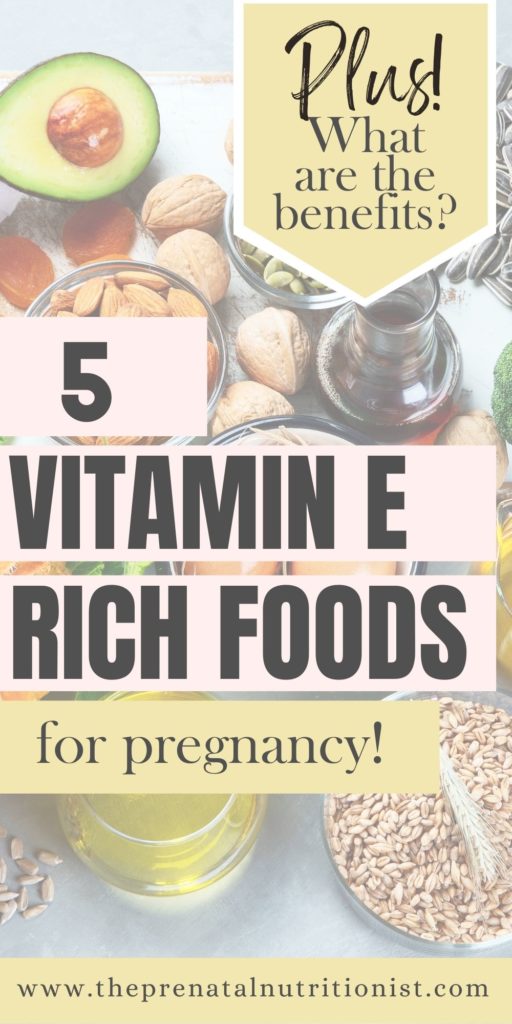
5 Vitamin E-Rich Foods For Pregnancy
Avocado
Avocados are an overall great food choice for pregnancy. They are rich in many important nutrients for pregnancy, including magnesium, folate, vitamin E, fiber, and monounsaturated fats.
One avocado supplies about 4.2 mg of vitamin E, or 28% of your recommended diet. Enjoy avocado in various ways, including smoothies, salads, sandwiches, or toast.
Sunflower Seeds
Sunflower seeds are also high in vitamin E. An ounce of dry roasted sunflower seeds provides 7.4 mg of vitamin E or 49% of the recommended daily allowance (RDA). Sunflower seeds are also a good source of folate, fiber, and omega-3 fatty acids, which help support a baby’s brain development.
Almonds
One ounce of dry roasted almonds provides 6.4 mg of vitamin E, or 45% of the daily recommended amount.
Almonds also provide some folate, an essential nutrient for early pregnancy that helps prevent neural tube defects. They also contain a good amount of dietary fiber, which helps to regulate blood sugars and makes a good snack choice for those with gestational diabetes.
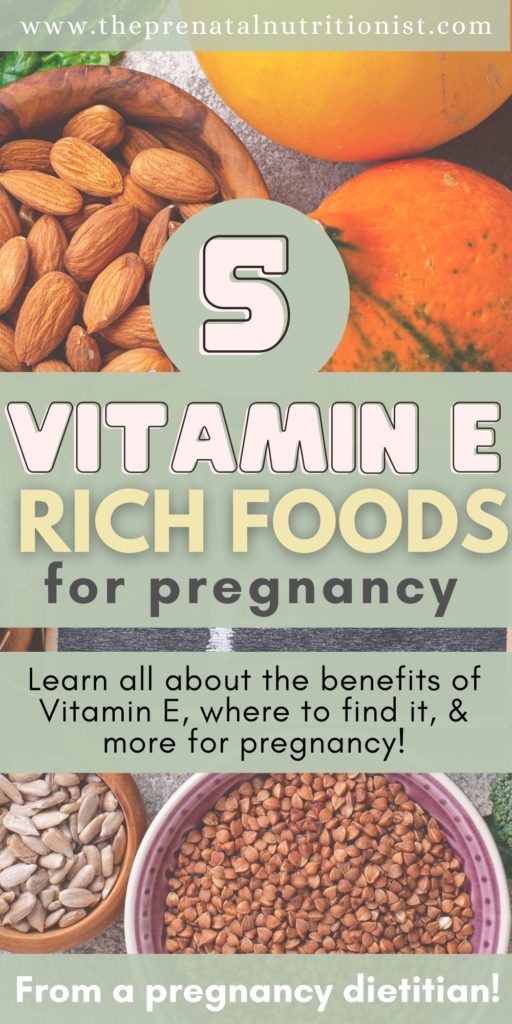
Mamey Sapote
Mamey sapote is a lesser-known fruit that offers many benefits for pregnant women. Half a fruit contains 5.9 mg of vitamin E, or 38% of the recommended daily value.
Additionally, mamey fruit contains non-dairy calcium, magnesium, vitamin C, non-heme iron, and niacin. Calcium is essential for the development of your baby’s skeletal system. Niacin, or vitamin B3, plays a role in many functions, including energy production.
Hazelnuts
Hazelnuts are also a good source of vitamin E. One ounce of hazelnuts provides about 4.3 mg of vitamin E or 28% of the recommended daily value. Hazelnuts also give a boost of protein, fats, and fiber, making them a great healthy snack for pregnant women.
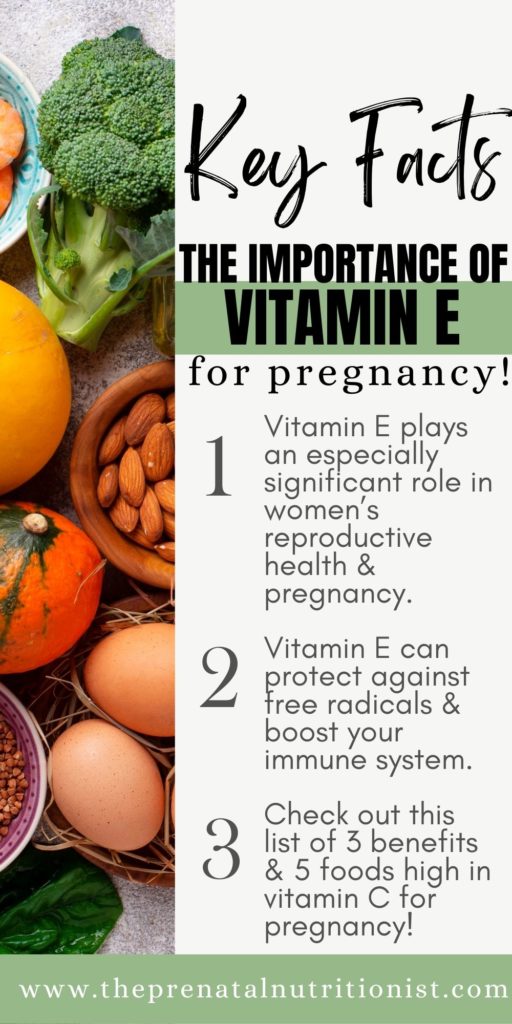
Most people are not deficient in vitamin E during pregnancy, but there’s no denying regular consumption does benefit and support your growing baby.
For more information on supporting your pregnancy with good nutrition, check out my past blog posts like this: “What to Look for in Your Prenatal Vitamin.”
You will find even more evidence-based information on good nutrition during pregnancy inside The Prenatal Nutrition Library. As a member, you’ll have all the information you need to support your pregnancy with a balanced diet, right at your fingertips with our mobile app! Download the app for FREE today to get a peek inside and grab your free 7-day meal plan for pregnancy too!
